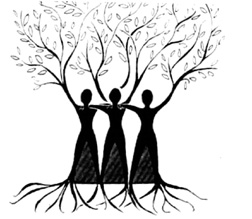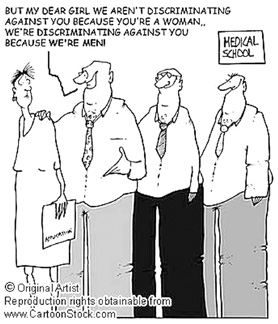|
observer |
|
|
|
|
|
OTHER LINKS |

|

|

|
Ensuring equal status for women
This discrimination against women violates the very principles of equality, human rights and above all, respect to live in dignity on equal terms (with men). Woman's participation in the political sphere with adequate and active representation, social, cultural and economic life is a key factor in ensuring steady and constructive growth of society and family. Women, as we know are not a homogeneous group; society, culture, economic conditions and many other factors attribute to the situation and status of women. Even within one country, the differences vary according to communities, family of origin, age, ethnicity, economic background, social status, occupation, upbringing, religion, education and also areas such as geographical region. Comparatively, in Sri Lanka the status of women can be taken to be on a substantial level with men, in terms of employment, education and health when compared with other Asian countries in the region such as in India and China where more girls (than boys) die before their fifth birthday according to statistics. This is more due to discriminatory health care and nutrition. Key factorsMany have dealt with this issue in the past, and in spite of changing values and legislation, women are still discriminated at many levels. The reason for this cannot be spoken in a broader sense as the factors vary at different levels and situation. Briefly speaking, some of the key factors can be: Discriminatory child care (health care), sex selection, unemployment and women's reproductive roles.
In order to have the full participation of women in development, it is first important to research and study past failures and successes in this regard. Empowering women cannot be taken in isolation as an issue in itself, but as a result of many factors that affects them. If the many voices of women activists, theorists, individuals and groups have not been heard so far and the various programmes and projects still not implemented or not successful as expected, then the reason for this lies in the hands of the initiators. In a world where the stock market, multi national companies and a handful of individuals have control, tackling women's exploitation as a development issue is critical. UN ConventionAs a country that has ratified the UN Convention on the Elimination of All Forms of Discrimination Against Women, Sri Lanka has more than a moral obligation to assess the status of women by using this Manual as a framework to monitor local implementation of the Convention and the machinery through which this can be achieved, is by the involvement of NGOs, the public and private sectors and spearheaded by the Government. The key issues to be addressed are: Better and ensured health care, equal opportunity in employment, prevention of sex role stereotyping, prevention of exploitation of women, achieve parity in the universal education of both girls and boys at primary and secondary school levels and encourage political and public life, international representation and participation, equality before the law and accelerate the development of equality between men and women. Whatever the implementation, if gender awareness is not taken into account as a separate component in devising policies and programmes to achieve greater equality of outcomes, the maximum results sought will be hampered or completely barred. Gender awareness means keeping in mind that women have different needs from men, women have special needs, women are disadvantaged as a group and ultimately, women's development requires equality with men (quoted:CYP module). There are many theories and concepts that strive to achieve the development of women. Among these, there are three development theories that promotes equal status for women, namely they are the Women in Development (WID), Women and Development (WAD) and Gender and Development (GAD). WID approachBriefly highlighting the three schools of thought, the WID approach was generated by the publication of Esther Boserup's book 'Woman's Role in Economic Development'. In that she has analysed the division of labour in agrarian societies. People who support the WID approach suggest the integration of women into development. This is set to be achieved by designing and implementing income generating projects. The WID school of thought sees the exclusion of women in development as the main problem. The WAD theory was developed by Marxist feminists who argued that developing countries are dominated by rich countries and as a result there is an unequal and exploitative relationship with developed capitalist countries. They believe that no amount of manipulation will solve these problems as it is deeply integrated within economic structures. GAD approachUnlike the WID and WAD theories, the Gender and Development (GAD) approach does not isolate women as a separate group; rather proposes the need to transform unequal gender and class relations by empowering women, including men. Of the three approaches, the GAD theory involves both men and women in the development process. Supporters of the GAD theory believe that the unequal power relations is the key issue. Any theory is based on a pressing issue that concerns the society at that given time. A degree of research and a lengthy study into the issue addressed are required to apply those theories practically. Thereafter the best approach can be adopted taking into account the present situation and the resources and suitability to the issue at hand. The critiques of these theories will explain more the development of these theories from its inception over the years. The best approach is to keep in mind that gender awareness is both an important and separate component in planning, implementing, monitoring and evaluating any project. |
 Ensuring equal status for women is an important component in any
policy formulation. Where there is unequal access to resources for men
and women, the development of a country stagnates and side by side the
welfare of the world too suffers.
Ensuring equal status for women is an important component in any
policy formulation. Where there is unequal access to resources for men
and women, the development of a country stagnates and side by side the
welfare of the world too suffers. 








